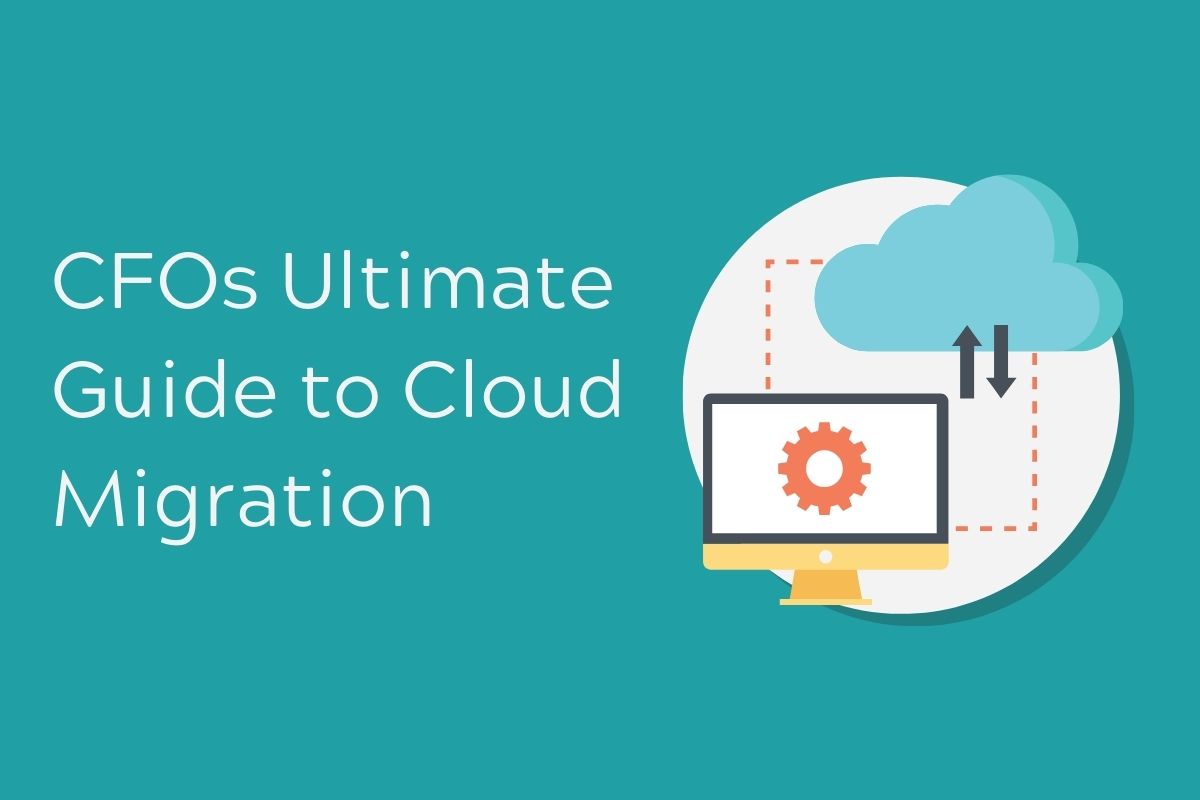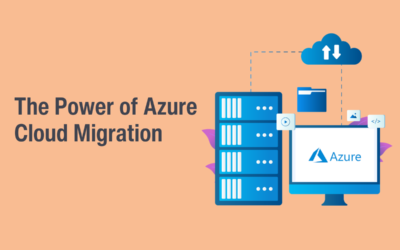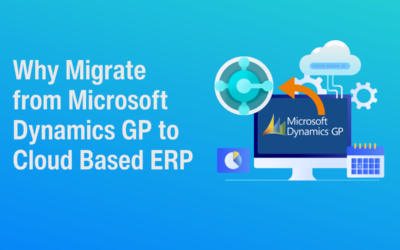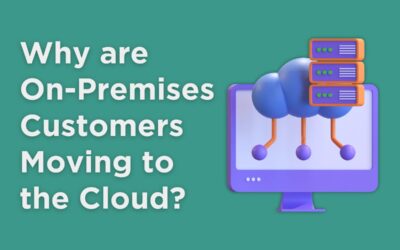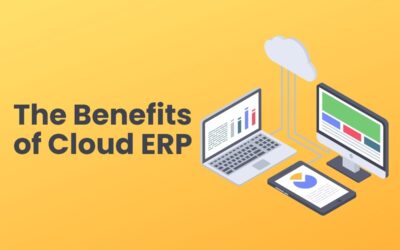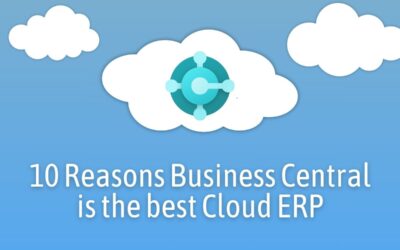As businesses strive to maintain competitiveness and foster innovation, the landscape of IT infrastructure is evolving. While traditional on-premises deployments remain effective, the allure of cloud transformation is undeniable.
Cloud migration presents a strategic opportunity for CFOs to elevate their organisation’s capabilities. From scalability and flexibility to bolstered security and cost efficiencies, the benefits are manifold.
In this blog post, we’ll delve into the imperative of cloud transformation for modern enterprises.
Exploring challenges, solutions, and seamless navigation strategies, we invite you to join us on a journey toward unlocking the full potential of cloud technology for your organisation.
The importance of cloud transformation for CFOs
Cloud migration offers CFOs a strategic avenue to drive efficiency and foster growth while managing costs effectively. Through cloud-based solutions, CFOs can:
Optimise Costs: Transitioning to the cloud enables CFOs to adopt a more adaptable cost structure, shifting from capital-intensive investments to operational expenditures. Flexible pricing models allow organisations to scale resources according to demand, curtailing unnecessary spending on underutilised infrastructure.
Foster Agility: Cloud platforms empower CFOs to swiftly adapt to market fluctuations and business needs. On-demand resource provisioning facilitates agile decision-making and swift deployment of financial applications, aligning with evolving business requirements.
Mitigate Risks: Cloud providers offer robust security measures and disaster recovery capabilities, bolstering data protection compared to on-premises solutions. CFOs can mitigate risks associated with data breaches, system failures, and regulatory compliance, ensuring the financial stability of the organisation.
Accelerate Innovation: Cloud technologies facilitate innovation by granting access to advanced analytics, machine learning, and artificial intelligence capabilities. CFOs can leverage these tools to derive data-driven insights, enhance forecasting accuracy, and unearth new revenue streams.
Unlock Your Financial Potential with Cloud Transformation!
Are you ready to revolutionize your financial strategy?
Discover the power of cloud transformation for CFOs and stay ahead in today’s digital age.
Key Challenges and Solutions to Cloud Transformation:
As CFOs, navigating the path to cloud transformation presents unique challenges that require careful consideration and strategic solutions to ensure a successful transition.
Let’s explore these challenges and relevant solutions tailored to financial leadership:
Legacy Systems and Technical Debt
Challenge: Outdated legacy systems and technical debt pose significant hurdles to migration, often lacking compatibility with modern cloud environments and impeding operational efficiency.
Solution: Partnering with experienced cloud consultants, such as Mercurius IT, CFOs can conduct a comprehensive assessment of existing systems, prioritise critical workloads for migration, and leverage tools for phased migration. This approach minimises disruption to financial operations while maximising the benefits of cloud adoption.
Data Migration Complexity
Challenge: Complex data migration across disparate systems poses risks of downtime, data loss, and compromised financial integrity.
Solution: Implementing robust data management strategies is paramount. By collaborating with cloud experts, CFOs can employ tools for data profiling, cleansing, and incremental transfers, ensuring the security and integrity of financial data throughout the migration process. This approach safeguards against potential financial risks and regulatory compliance issues.
Security and Compliance Concerns
Challenge: Security breaches and compliance failures present significant financial risks to organisations transitioning to the cloud.
Solution: CFOs must prioritise security and compliance measures, working closely with IT and compliance teams to employ multi-layered security measures, encryption, access controls, and compliance frameworks such as Azure Security Center and GDPR. This proactive approach protects sensitive financial data, mitigates regulatory risks, and safeguards the organisation’s financial standing.
Cultural and Organisational Change
Challenge: Cultural resistance and skills gaps can hinder cloud adoption and innovation within finance departments.
Solution: CFOs play a pivotal role in fostering a culture of collaboration and innovation. By investing in employee training and promoting cross-functional communication, CFOs can empower finance teams to embrace change, adopt cloud technologies, and drive digital transformation initiatives. This proactive approach enhances operational efficiency, improves financial insights, and positions the organisation for long-term financial success.
Cost Management and Optimisation
Challenge: Overspending on cloud resources without proper governance can strain financial resources and disrupt budgetary planning.
Solution: CFOs must implement robust cost management strategies, leveraging cloud management tools and analytics to monitor usage patterns, rightsize resources, and optimise spending. By partnering with cloud experts like Mercurius IT, CFOs can proactively identify cost-saving opportunities, maximise ROI on cloud investments, and maintain financial agility in a dynamic business environment.
Understanding the Cloud
Before delving into the intricacies of cloud transformation, it’s essential to grasp the fundamentals of cloud computing. At its core, the cloud refers to a network of remote servers hosted on the Internet to store, manage, and process data, rather than relying on a local server or personal computer.
Cloud services come in various types, including public, private, and hybrid clouds, each offering unique advantages and deployment options tailored to the specific needs of businesses.
To embark on a successful cloud transformation journey, it’s essential to have a clear understanding of what the cloud is and how it operates.
Let’s delve deeper into the various aspects of cloud computing:
What is the Cloud?
At its core, the cloud refers to a network of remote servers hosted on the Internet that store, manage, and process data, applications, and services. Unlike on-premises infrastructure, which relies on physical servers and storage devices located within an organisation’s premises, the cloud offers a scalable and flexible computing environment that can be accessed on-demand from anywhere with an Internet connection.
Different Types of Cloud
Cloud services are typically categorised into three main types: public, private, and hybrid clouds.
Public Cloud: Public cloud services are provided by third-party vendors and are accessible to multiple users over the Internet. Public clouds offer scalability, cost-effectiveness, and ease of deployment, making them ideal for startups, small businesses, and enterprises alike.
Private Cloud: Private cloud services are dedicated to a single organisation and are hosted either on-premises or by a third-party provider.
Hybrid Cloud: Hybrid clouds combine elements of public and private clouds, allowing organisations to leverage the scalability and cost-effectiveness of public clouds while retaining control over sensitive data and critical workloads in a private cloud environment.
Different Cloud Deployments
Cloud deployments can be categorised based on their architecture and delivery models:
Software as a Service (SaaS): SaaS delivers software applications over the Internet on a subscription basis, eliminating the need for organisations to install, maintain, and manage the underlying infrastructure and software. Examples of SaaS applications include Microsoft Office 365, Salesforce, and Google Workspace.
Infrastructure as a Service (IaaS): IaaS provides virtualised computing resources over the Internet, including servers, storage, and networking infrastructure, allowing organisations to deploy and manage their applications and workloads without the need for physical hardware.
Platform as a Service (PaaS): PaaS offers a complete development and deployment environment in the cloud, including middleware, development tools, and runtime environments, enabling developers to build, test, and deploy applications quickly and efficiently.
What’s Involved in Cloud Transformation
Cloud transformation involves assessing current infrastructure, selecting suitable workloads for migration, designing scalable architecture, implementing robust security measures, and establishing governance frameworks.
This process ensures efficient and compliant use of cloud resources while safeguarding sensitive financial data. Additionally, fostering a culture of innovation and collaboration within the organisation is crucial for fully leveraging the potential of cloud technology.
Encouraging creativity, cross-functional collaboration, continuous learning, and recognition of success drives innovation, efficiency, and growth.
Why Move to the Cloud?
Embracing the cloud not only enhances financial efficiency but also drives innovation and growth. Here’s why CFOs should consider making the move:
Enhanced Agility, Scalability, and Flexibility
Cloud solutions enable organisations to adapt swiftly to evolving market dynamics and customer demands. With the ability to scale resources up or down dynamically, businesses can optimise performance without incurring hefty infrastructure investments.
Improved Cost Efficiency
Shifting from capital-intensive on-premises infrastructure to flexible cloud services unlocks significant cost savings. By eliminating upfront capital expenditure and minimising operational costs, organisations can achieve better cost predictability and financial efficiency.
Enhanced Security
Leading cloud providers invest heavily in state-of-the-art security measures to safeguard sensitive data and mitigate cybersecurity risks. With robust encryption, threat detection, and access controls, cloud solutions offer superior security compared to on-premises deployments.
Increased Innovation
The cloud provides a fertile ground for innovation, empowering organisations to experiment with emerging technologies such as artificial intelligence, machine learning, and Internet of Things (IoT). By leveraging cloud capabilities, CFOs can drive digital transformation initiatives and gain a competitive edge in the market.
Streamlined Operations
Cloud-based solutions offer centralised management, automated provisioning, and seamless integration capabilities. This streamlines operations, enhances collaboration, and accelerates time-to-market for new products and services, enabling organisations to remain agile and responsive to business demands.
Unlock Your Business Potential in the Cloud!
Ready to experience the transformational power of cloud technology? Discover why moving to the cloud is essential for modern businesses like yours.
How to Move to the Cloud?
Successfully migrating to the cloud requires careful planning, meticulous execution, and ongoing optimisation.
Organisations should begin by conducting a comprehensive assessment of their current infrastructure, identifying key workloads and applications suitable for migration, and developing a detailed migration strategy.
They should also prioritise security and compliance considerations, leverage automation tools and best practices to streamline the migration process, and continuously monitor and optimise their cloud environment to maximise performance and cost efficiency.
Moving to the cloud is a transformative journey that requires careful planning, strategic execution, and expert guidance. Here’s a brief outline of the steps involved in migrating to the cloud with Mercurius IT by your side:
Assessment and Strategy
- Collaborate with Mercurius IT to conduct a comprehensive assessment of your existing infrastructure, workloads, and business objectives.
- Define a tailored cloud strategy aligned with your organisational goals, prioritising critical workloads for migration and identifying potential challenges and opportunities.
Planning and Design
- Work closely with Mercurius IT to design a scalable and resilient cloud architecture that meets your performance, security, and compliance requirements.
- Develop a detailed migration plan outlining timelines, milestones, and resource requirements, taking into account dependencies and potential risks.
Migration and Deployment
- Leverage Mercurius IT’s expertise and best practices to execute the migration process seamlessly, ensuring minimal disruption to business operations.
- Implement robust data migration strategies, including data profiling, cleansing, and validation, to ensure the integrity and security of your data throughout the transition.
Integration and Optimisation
- Collaborate with Mercurius IT to integrate cloud services with your existing systems and applications, leveraging automation and orchestration to streamline workflows and enhance productivity.
- Continuously monitor and optimise your cloud environment, leveraging Mercurius IT’s insights and recommendations to improve performance, cost efficiency, and resource utilisation.
Training and Support
- Provide training and support to empower your teams with the knowledge and skills required to leverage cloud technologies effectively.
- Partner with Mercurius IT to ensure ongoing support and guidance, addressing any challenges or issues that may arise post-migration and facilitating a smooth transition to the cloud.
By partnering with Mercurius IT throughout the cloud migration journey, you can benefit from our expertise, experience, and commitment to your success.
Why Choose Microsoft Azure?
Microsoft Azure stands out as a leading cloud platform, offering a comprehensive suite of services and features designed to meet the diverse needs of businesses across industries.
With its global presence, enterprise-grade security, hybrid capabilities, and extensive ecosystem of partners and integrations, Azure provides a robust foundation for organisations embarking on their cloud transformation journey.
From infrastructure as a service (IaaS) and platform as a service (PaaS) to software as a service (SaaS) offerings, Azure enables businesses to build, deploy, and manage applications seamlessly, empowering them to innovate, scale, and succeed in the digital age.
Choosing Mercurius IT as Your Cloud Transformation Partner
At Mercurius IT, we understand that navigating the complexities of cloud transformation can be daunting. That’s why we’re here to help. As a trusted Microsoft Solutions Partner, we specialise in helping businesses harness the power of Azure to drive innovation, improve agility, and achieve their strategic objectives.
Our team of certified experts will work closely with you to assess your unique needs, design a tailored cloud strategy, and execute a seamless migration that maximises value and minimises disruption.
With Mercurius IT by your side, you can embark on your cloud transformation journey with confidence, knowing that you have a dedicated partner committed to your success every step of the way.
Elevate Your Business with Mercurius IT’s Cloud Expertise!
Ready to unlock the full potential of cloud transformation? Partner with Mercurius IT for seamless migration and unparalleled cloud solutions tailored to your needs.
Cloud transformation is not just a technological shift; it’s a strategic imperative for businesses looking to thrive in today’s digital economy. By embracing the cloud, organisations can unlock unprecedented opportunities for innovation, agility, and growth while overcoming the challenges of legacy systems and outdated infrastructure.
With careful planning, strategic partnerships, and the right cloud platform, businesses can embark on a transformational journey that positions them for long-term success. So, are you ready to unlock the full potential of the cloud?
Let Mercurius IT be your guide. Simply leave your details in the contact form below to get started.

